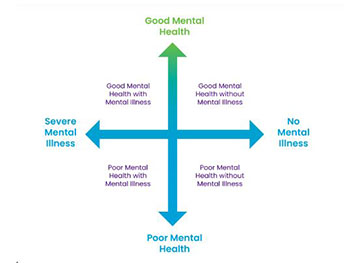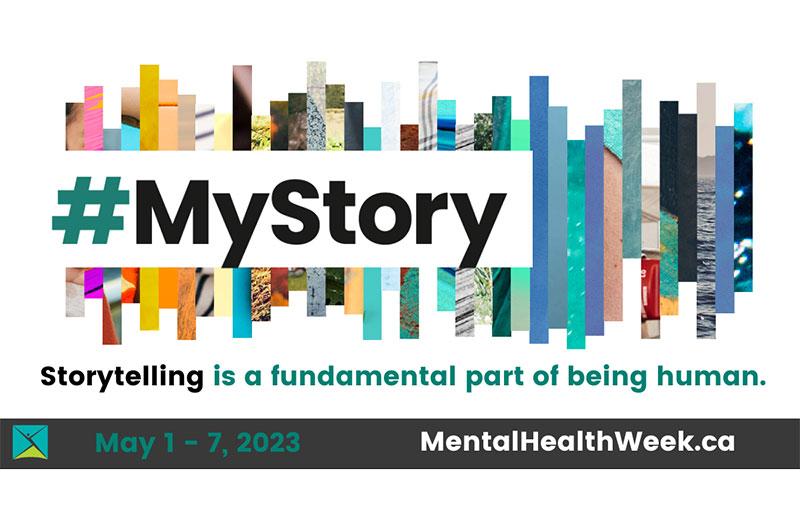When we talk about mental health, a lot of people think about mental illnesses (depression, anxiety, and more). While “mental health” and “mental illness” are often used interchangeably, they are not the same thing. May 1 – 7 is Mental Health Week, let’s explore what mental health really is.
Mental health and mental illness: What’s the difference?
Everyone has mental health but not everyone has a mental illness. While our understandings of mental health may differ according to cultural background, it might be helpful to think about mental health as a range or spectrum. On one end of the spectrum is good mental health. On the other, is poor mental health. We all move along this spectrum, depending on what’s happening in our lives and how we’re coping.
On one end of the mental illness spectrum, we find no diagnosable mental illness (minimal or no symptoms). On the other end is severe mental illness. Because of this, mental health and mental illness are two separate, yet intersecting matters of health.

The graphic from School Mental Health Ontario demonstrates how a person may have a mental illness and good mental health (for instance symptoms of anxiety and healthy strategies to cope with daily stressors). Or a person may not have a mental illness but may struggle with their mental health (for example, they may withdraw from loved ones when stressed which could contribute to feelings of loneliness and increase stress). Many people struggled with their mental health (with or without mental illness) during the COVID-19 pandemic; they found themselves in the bottom right corner of this image. The good news is that mental health, like physical health, can change.
How to help promote and protect good mental health
There are many ways that you can promote positive mental health.
- Talk about feelings and life’s stresses to trusted people
- Value ourselves and others
- Take time to rest
- Practice self care
- Engage in physical activity
- Stay connected with friends and loved ones
- Be creative
- Get involved in community activities
- Ask for help when needed
For more information, visit the Mental Health and Substance Use page on the Northern Health website or connect with Northern Health’s Regional Program Lead, Mental Wellness.














Comments